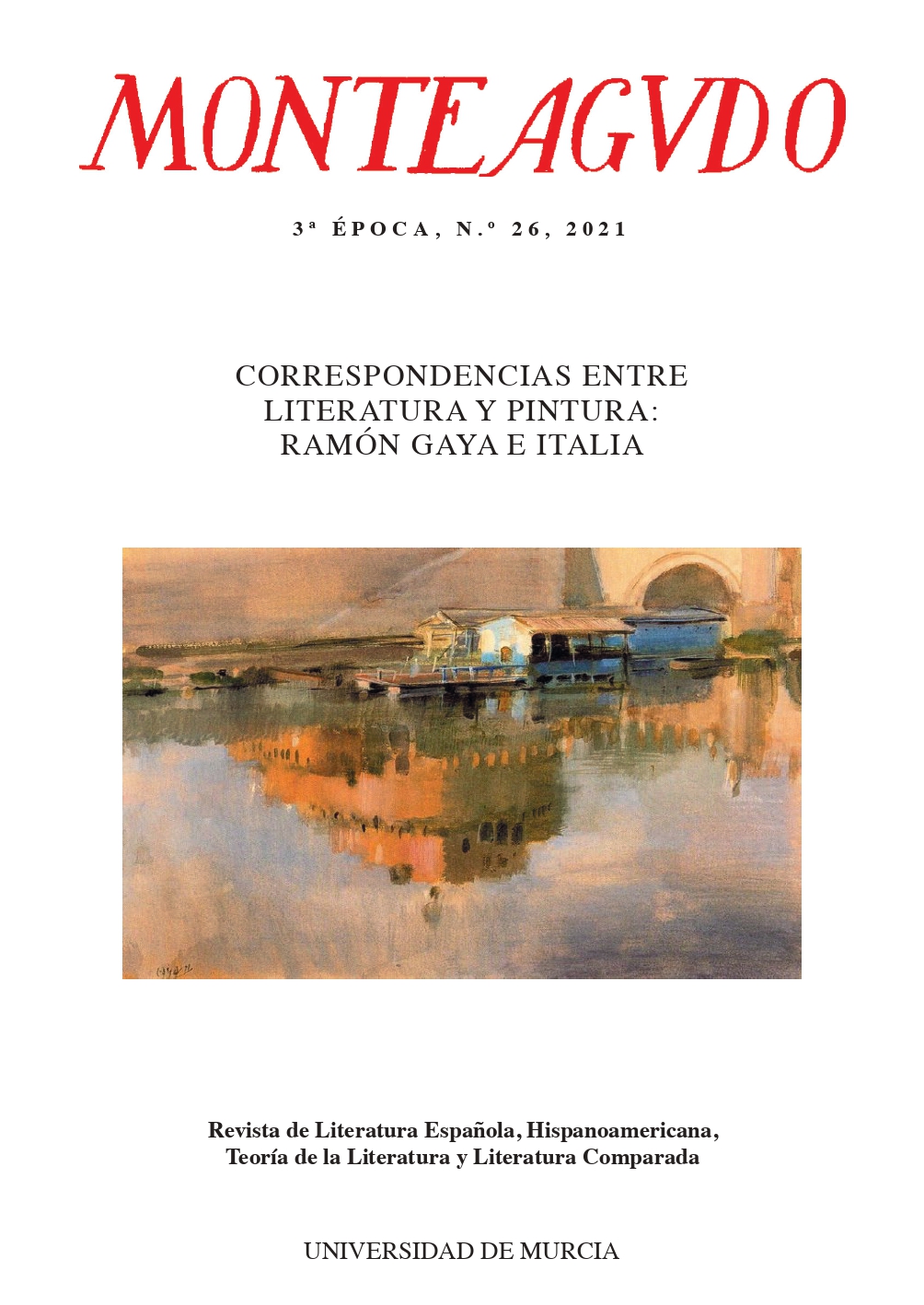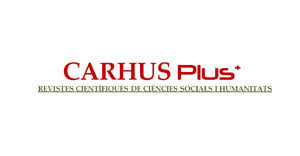The fratenity between Gaya and Zambrano: the authenticity of creation
Abstract
The friendship between María Zambrano and Ramón Gaya has its roots in the political commitment of the years of the Republic and the Civil War, but matured and consolidated in the years of their exile in Rome, on the terrain of creation. In this essay I propose to analyze the concordances existing in their respective conceptions of creative activity. To illuminate these coincidences, I refer to the Orteghean category of authenticity, showing how Gaya and Zambrano translate it into in terms of creation, but also how they deepen and radicalize its interpretation through the readings of Friedrich Nietzsche and Simone Weil.
Downloads
-
Abstract522
-
PDF (Español (España))352
References
Campo, Cristina, Caro Bul: lettere a Leone Traverso (1953- 1967), Milano, Adelphi, 2007.
Campo, Cristina, Se tu fossi qui. Lettere a María Zambrano 1961-1975, Milano, Archinto, 2009.
Campo, Cristina, Il sentimento della pittura di Ramón Gaya, in AA. VV., Ramón Gaya, Antologica 1948-1999, Murcia, Museo Ramón Gaya, 2008.
Chacón Fuertes, Pedro, «Ramón Gaya-María Zambrano: Elective Affinities»,Escritura e imagen, Vol. 7, 2011, págs. 39-58.
Chacón Fuertes, Pedro, «La pintura como lugar de revelación en María Zambrano», Aurora: papeles del Seminario María Zambrano, n.º 16, 2015, págs. 28-41.
Gaya, Ramón (2010), Obra completa, Valencia, Pre-Textos, 2010.
Gaya, Ramón, Cartas a sus amigos, Valencia, Pre-Textos, 20 16.
Lasaga Medina, José, Figuras de la vida buena, Madrid, Enigma Editores, 2006.
Laurenzi, Elena, Sotto il segno dell’aurora. Studi su María Zambrano e Friedrich Nietzsche, Pisa, ETS, 2012.
Laurenzi, Elena, El testimonio de las luciérnagas. María Zambrano y la experiencia de la guerra de España, in Bea, E. y Fernández Ruiz-Gálvez, E., Cien años de discurso femenino sobre la guerra y la paz, Valencia, Tirant humanidades, 2016.
Laurenzi, Elena, Il paradosso della libertà. Una lettura politica di María Zambrano, Milano, Mimesis, 2018.
Morey, Miguel, «Las condiciones del pájaro solitario (Invitación a Ramón Gaya)», Aurora: papeles del Seminario María Zambrano, n.º 5, 2003, pág. 14-21.
Ortega y Gasset, José, Pidiendo un Goethe desde dentro, en Obras completas V, Madrid, Taurus-Fundación Ortega, 2006.
Rockwell, Gray, José Ortega y Gasset, el Imperativo de la Modernidad. Una Biografía Humana e Intelectual, Madrid, Espasa Calpe, 1994.
Trapiello, Andrés, Las armas y las letras: literatura y Guerra Civil (1936-1939), Barcelona, Austral, 2011.
Weil, Simone, La pesanteur et la grâce, Paris, Librairie Plon, 1947.
Zambrano, María, Prólogo, en Obras reunidas, Vol. 1, Madrid, Aguilar, 1971.
Zambrano, María, «A modo de autobiografía», en Anthropos, n.º 70/71, 1987, págs. 69-73.
Zambrano, María, Persona y democracia. La historia sacrificial, Barcelona, Anthropos, 1988.
Zambrano, María, Las palabras del regreso, Salamanca, Amarú Ediciones, 1995.
Zambrano, María, Los intelectuales en el drama de España y escritos de la guerra civil, Madrid, Trotta, 1998.
Zambrano, María y Laurenzi, Elena, Dante specchio umano, Troina, Città aperta, 2007.
Zambrano, María y Gaya, Ramón, Y así nos entendimos (Correspondencia 1949-1990), Valencia, Pre-Textos, 2018.
Zambrano, María, El idiota, Valencia, Pre-Textos, 2019
The works published in this journal are subject to the following terms:
- The Publications Service of the University of Murcia (the publisher) retains the property rights (copyright) of the published works, and encourages and allows their reuse under the license of use indicated in point 2.
© Publications Service, University of Murcia, 2011
- The works are published in the electronic edition of the journal under a Creative Commons Attribution-NonCommercial-NoDerivatives 3.0 Spain license (legal text). They may be copied, used, distributed, transmitted and publicly displayed, provided that: i) the authorship and the original source of their publication (journal, publisher and URL of the work) are cited; ii) they are not used for commercial purposes; iii) the existence and specifications of this license of use are mentioned.







